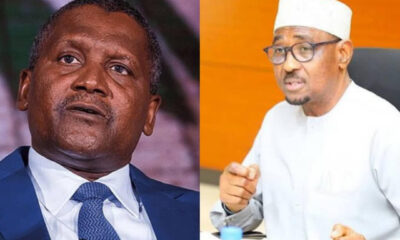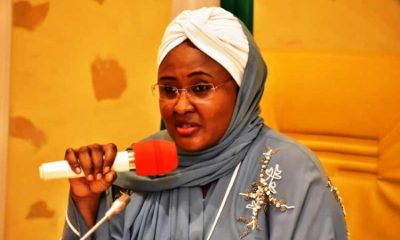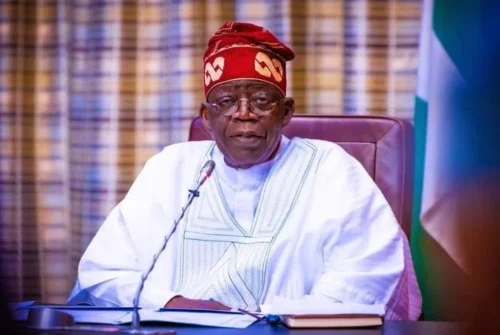It is time to fully comply with the Supreme Court judgment on financial autonomy for local governments, President Bola Ahmed Tinubu admonished governors last night.
He urged them to brace for the implementation of state police as a panacea to insecurity.
The President spoke during a National Caucus meeting of the All Progressives Congress (APC).
The governors of the APC, along with party leaders, attended the meeting at the Presidential Villa.
The caucus is usually a prelude to the National Executive Committee (NEC) meeting, which will be held today.
The Supreme Court in July last year held that funds for the councils should be paid directly into their coffers rather than into the joint state/local government account, as is currently done.
That verdict has not been obeyed, prompting the President’s call.
He said there can be no genuine autonomy for the councils without direct access to funds.
Emphasizing the importance of the apex court judgment, he said: “Let us look at the recent Supreme Court judgment, what we can do with it and how well we can position our country and our party.”
President Tinubu said the judgment on autonomy must be implemented in both letter and spirit, adding that councils cannot function effectively without financial independence.
He stressed, “To me, the local government autonomy, as it is, must be effective. There is no autonomy without a funded mandate.
“We’ll give them their money directly. That’s the truth. That’ll comply with the Supreme Court order.”
President Tinubu urged the governors to take leadership seriously by ensuring that governance and party coordination extend down to the grassroots.
He said, “You are in a leadership position and must yield and continue to promote, tolerate, and be flexible. Get involved in whatever is happening in your various states, up to the local government level.”
The President also enjoined the governors to support the proposed establishment of state police, describing it as a critical pillar of his administration’s security reform agenda.
He explained that he had assured international partners of Nigeria’s resolve to make state policing work.
He expressed confidence in the ruling party’s capacity to deliver the reform.
President Tinubu said: “I had a very long discussion with the U.S. and Europeans. I was bragging to them that, definitely, we will use the state police to improve security.”
He said when his interlocutors questioned his confidence, he pointed to the APC’s dominance across the country.
The President added: “They asked me if I’m confident, and I said yes. I have a party to depend on. I have a party that will make it happen, and God forbid, we will not fail.”
The President emphasized that reconciliation, accommodation, and cooperation within the party were essential to translating numerical strength into effective governance.
Akpabio commended President Tinubu for what he described as his decisive leadership on national security, particularly the recent rescue of over 100 abducted children, pledging the Senate’s full backing for tougher measures against kidnapping and banditry.
He praised the security agencies for their efforts and expressed sympathy with the families of victims and fallen security personnel.
Akpabio, who offered prayers for the release of the remaining captives, assured affected families of continued support, stressing that their sacrifices would not be forgotten.
The Senate President applauded President Tinubu’s diplomatic intervention in the Benin Republic to safeguard democracy.
He said the Senate had already commended the President’s regional engagement during plenary, noting that Nigeria’s security cannot be guaranteed if its neighbours remain unstable.
Akpabio explained that the Senate had passed a bill classifying kidnapping as terrorism, a move that would attract the death penalty upon presidential assent.
He urged governors to enforce capital punishment where applicable, warning that failure to do so could embolden criminals to endanger society further.
Akpabio welcomed governors who defected to the APC and urged party unity and accommodation across states.
He said the ruling party would deliver bloc votes for President Tinubu in the 2027 elections, expressing confidence that cohesion within the APC would translate into electoral victory nationwide.
APC Chairman Prof Nentawe Yilwatda said the party had recorded a surge in political strength following the high-profile defections and dominance in the National Assembly, declaring that APC now enjoys a “commanding majority” nationwide.
He said the influx of new members from opposition parties reflects the APC’s expanding national appeal.
He cited the defection of Governors Douye Diri (Bayelsa State), Peter Mbah (Enugu), Agbu Kefas (Taraba) and Siminalayi Fubara (Rivers) as evidence of the party’s widening influence across geo-political lines.
The chairman also noted that the party has consolidated its grip on the National Assembly, attributing the dominance to aggressive internal mobilization led by the leadership of both chambers.
Yilwatda said the APC now holds clear majorities in the Senate and the House of Representatives, adding that they have strengthened the party’s legislative leverage and national profile.
On party organization, he unfolded major reforms, including the rollout of an electronic membership registration system to improve transparency and internal democracy.
He said training had been conducted at zonal, state and local government levels, while new members have been assured full rights and privileges ahead of congresses and the national convention.
Yilwatda also highlighted other milestones such as the acquisition of land for a new APC national secretariat in Abuja, strong performances in recent by-elections, progress on constitutional amendments, and preparations for the 2026 FCT local government elections.
He reaffirmed the party’s full backing for President Tinubu’s reforms, expressing confidence that APC remains united and well-positioned for sustained electoral success nationwide.
President Tinubu, who arrived at the State House Conference Centre, venue of the meeting at about 7:38 pm, was accompanied by Vice President Kashim Shettima, Akpabio, House of Representatives Speaker Tajudeen Abbas, Deputy Speaker Benjamin Kalu, Chairman of the Progressive Governors Forum (PGF) and Governor of Imo State, Hope Uzodinma, and Prof. Yilwatda.
The meeting was attended by former Vice President Yemi Osinbajo, members of the National Working Committee (NWC), governors, and principal officers of the National Assembly.
Governors at the meeting included Monday Okpebholo (Edo), Inuwa Yahaya (Gombe), Lucky Aiyedatiwa (Ondo), Usman Ododo (Kogi), Biodun Oyebanji (Ekiti), Francis Nwifuru (Ebonyi), Ahmed Aliyu (Sokoto), Mai Mala Buni (Yobe), Rev. Fr. Hyacinth Alia (Benue), Bassey Otu (Cross River), Umar Namadi (Jigawa), Chairman of the Nigeria Governors’ Forum, AbdulRahman AbdulRazaq (Kwara), Abdullahi Sule (Nasarawa), Dapo Abiodun (Ogun), Uba Sani (Kaduna), and Dikko Radda (Katsina).
Party elders at the parley were former interim national chairman Chief Bisi Akande, former Ogun State Governor Chief Segun Osoba, former Osun State Governor and Minister, Adegboyega Oyetola; former Cross River State Governor Ben Ayade; former Taraba State Governor Jolly Nyame; and former Delta State Governor, Dr Ifeanyi Okowa.
Also in attendance were former Senate Presidents Ken Nnamani, Ahmed Lawan, and Anyim Pius Anyim; former Deputy Senate President, Ovie Omo-Agege; Chairman of the National Drug Law Enforcement Agency (NDLEA), Brig-Gen. Buba Marwa; former governors Isa Yuguda (Bauchi), Yahaya Bello (Kogi), Adams Oshiomhole (Edo), Abubakar Bello (Niger), Ibikunle Amosun (Ogun), Niyi Adebayo (Ekiti), Abdulaziz Yari (Zamfara) and Ahmed Sani Yerima (Zamfara).
National Assembly leaders included Deputy Senate President Jibrin Barau, Senate Leader Opeyemi Bamidele, Senators Gbenga Daniel, Aliyu Wammako, Adamu Aliero, and Simon Lalong, as well as House of Representatives leaders, Prof. Julius Ihonvbere and Idris Wase.


 Uncategorized2 days ago
Uncategorized2 days ago
 BIG STORY5 days ago
BIG STORY5 days ago
 BIG STORY4 days ago
BIG STORY4 days ago
 BIG STORY4 days ago
BIG STORY4 days ago
 BIG STORY4 days ago
BIG STORY4 days ago
 BIG STORY3 days ago
BIG STORY3 days ago
 BIG STORY2 days ago
BIG STORY2 days ago
 BIG STORY4 days ago
BIG STORY4 days ago






















